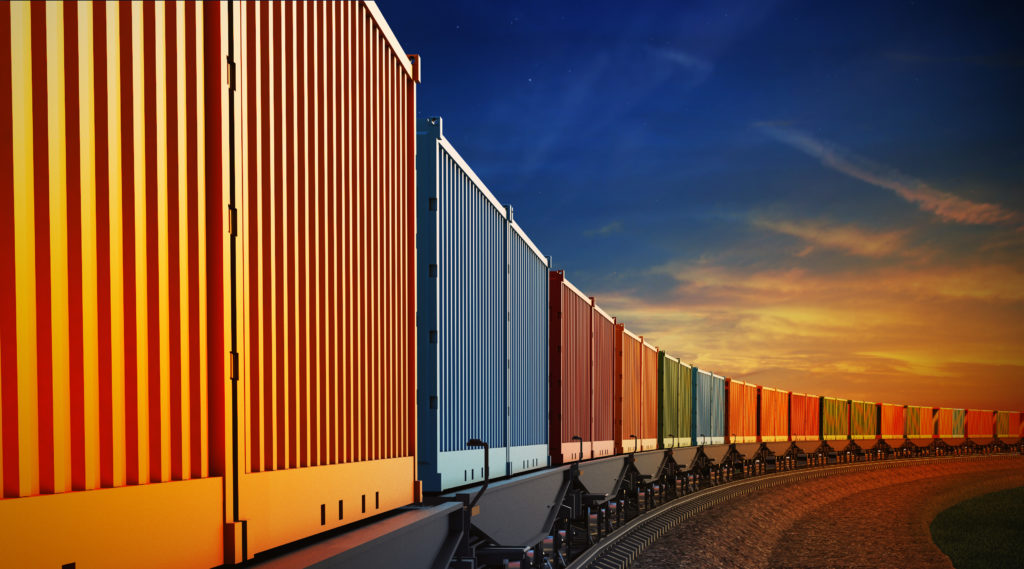 The goods we purchase every day—from our clothes to our home appliances—have often traveled a long journey to get on the shelf on which we buy them from. Every day, the world continues to produce goods, trade them, and transport them across borders and across the globe. The international supply chain is a magnificent and complex living thing that is always changing, growing, and adapting to global changes, demands, and downfalls. Here at Cordova Brokerage, we love being part of the bigger picture that is the global supply chain. Freight forwarding is part of this bigger process that is happening every day.
The goods we purchase every day—from our clothes to our home appliances—have often traveled a long journey to get on the shelf on which we buy them from. Every day, the world continues to produce goods, trade them, and transport them across borders and across the globe. The international supply chain is a magnificent and complex living thing that is always changing, growing, and adapting to global changes, demands, and downfalls. Here at Cordova Brokerage, we love being part of the bigger picture that is the global supply chain. Freight forwarding is part of this bigger process that is happening every day.
While it might seem simple on the surface, freight forwarding actually involves many different components and occupies a very strategic position on the supply chain. It might seem that freight forwarding is nothing but the movement of physical goods from one place to the other, it is actually much more than that. There is a logistical component that plays a big role in getting these goods safely, legally, and orderly to the right place, at the right time frame, on the right budget, etc.
The Early Days of Freight Forwarding and How it Has Changed Over the Years
As we covered in previous blog posts, the history of trade goes back hundreds of years. Freight forwarding, in some way or another, was always part of that process of trading across borders. As of 1800, the earliest freight forwarders were known to be innkeepers that helped the hotel guests to hold and ship forward their goods. Over the years, as trade and business progressed, the role of the freight forwarder became a more professional and controlled business to business enterprise that helped merchants and traders ship their goods to other parts of the world.
Established in 1836, Thomas Meadows and Company Limited helped the transportation of items through contracting using a network of local carriers. These services also helped their customers with documentation, tracking, and in regarding to customs. As the decades went on, of course, the advancement in transportation systems increased trade and made it much more effective when it came to forwarding freight. This access to better transportation such as steamships and trains, international trade was facilitated and therefore increased.
Freight forwarders play an important role in businesses trading their goods across borders. Customs regulations and legalities can often require a lot of paperwork, and a reliable freight forwarder is in charge of all of this paperwork. For many businesses, these can be quite time-consuming.
The Use of Technology in Freight Forwarding
While the customs regulations and rules are still very much an inevitable part of international trade, the use of technology has really facilitated all of these processes. There is still a lot of forms and documentation to fill out, but the advent of wireless internet and functional software, tracking and documenting freight has become much easier. This has allowed for immediate tracking and following shipments, as well as easy documentation.
Ways to Tell if Your Freight Forwarder is Trustworthy
Forwarding your goods from one side of the globe to another and across borders means dealing with customs regulations from both countries. This is why it’s important then to make sure that your freight forwarder is trustworthy and is an expert in the industry of customs and brokerage. A few ways to assess the professionalism of your freight forwarder include:
Flexibility: In a perfect world, everything would always go as planned. When dealing with products leaving the factory, however, and being transported, there are often unforeseen circumstances. A reliable freight forwarder knows the process and has the tools and the capacity to deal with last-minute changes.
Transparency: At the same time, a good freight forwarder should be able to supply you with status and tracking and be transparent about the transport of your product. A good forwarder will have the capabilities for cargo tracking and always change information on updates and important changes.
Proven expertise and reputation: A freight forwarder will have experience and understanding of various aspects of international trade. They will have an effective and efficient process and all of this will be reflected in their expertise and their reputation as a business. At Cordova Brokerage, our hands-on experience has served us as the best education for perfecting and implementing the best process and effective workflow.
Choose the Experts and Secure Your Freight the Right Way
A trustworthy and competent freight forwarder is a necessary part of your international dealings. Don’t risk not being in compliance or losing part of your shipment for trusting a freight forwarder that was not prepared to handle your job. Here at Cordova Brokerage, our expertise lies in the supply chain, customs, documentation, and transport. Give us a call today and see how we can help you with your freight forwarding.



